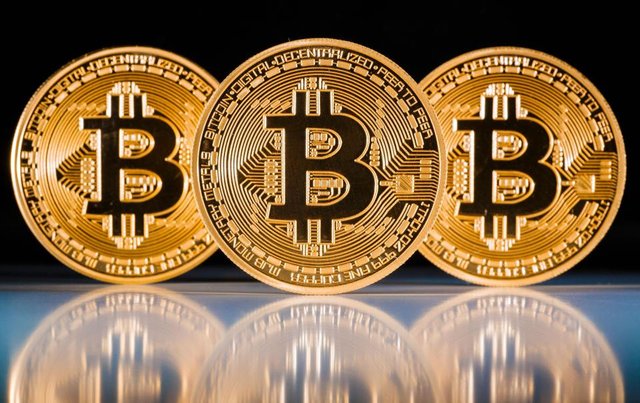5 Questions Bitcoin Traders Can't Answer

-- Will Bitcoin Actually Replace Traditional Currencies? "No one believes in the merits of a global cryptocurrency, except bitcoin zealots.
The notion that central banks will give up monetary control of their fiat currencies for a global cryptocurrency, especially bitcoin, is just not happening, so we should stop talking about it. Even economists who never agree on anything, agree on that.
Besides, a currency that swings between $1,000 and $5,000 over the course of two years, and between $3,000 and $5,000 in the course of a few weeks, isn’t exactly a good basis for operating a strong and stable foundation for a global financial system."
— Is Bitcoin A Legitimate Exchange Of Value? "Bitcoin has only two proven use cases after eight years: criminal activity and speculation.
I honestly don’t understand why this continues to be dismissed in the face of mountains of evidence to the contrary. In the eight years since bitcoin has been a currency, transaction volume in the support of legitimate commerce is virtually nil."
-- Is Bitcoin Really Free? "Bitcoin is anything but free. Miners now expect a fee for their work and won’t process transactions for which they are not paid.
That means that those costs are passed down the ecosystem to end users. There’s no such thing as a free lunch, even in the land of bitcoin."
-- Is Bitcoin Immune From Hacking And Fraud? "The rising value of bitcoin has made exchanges prime targets for hacking, and thus has made hacks there quite lucrative.
The Mt. Gox hack netted $500 million, Bitfinex $72 million, Bitcoinica $460,000, Bitfloor $250,000 and Bitstamp $5.2 million. South Korea’s Bithumb hack last summer — the exchange that serves 75 percent of the South Korean market for bitcoin — resulted in tens of millions of dollars lost for the 30,000 customers affected. Even the wallets that store bitcoin are vulnerable.
The FBI reports that some $28 million in losses were reported to them in 2016, triple what they saw in 2015. But that’s only what’s reported.
It’s hard to imagine a money launderer or terrorist emailing the FBI to let them know they were hacked and lost money. That means that no one actually knows how much money has been lost to hacking, but the anonymity and irrevocability associated with bitcoin transactions means that the money lost is also irrecoverable."
**-- Is It Too Soon For Crypto Derivatives And Margin Trading? With futures contracts on T-bills and corn, you know exactly what you're buying. The markets are backed up by regulated exchanges that have been around for 100 years or more.
But with Bitcoin, are you buying bits of computer code or somebody's wildly irrational idea of what those bits and bytes are worth?
“There’s a lot of interest from active traders and investors,” Claus Nielsen, head of markets at Denmark’s Saxo Bank, which has no immediate plans to offer crypto-CFDs, told The Financial Times.
“But this is not a liquid trading product yet. It’s premature, and not professional, to offer margin trading on cryptocurrencies to the retail segment yet.”
it's great but I recommend you to this website https://0bf34dfa.usi-tech.info/
Lots of questions. May I allow myself to answer one of them?
"Is Bitcoin A Legitimate Exchange Of Value?". There isn't much you can spend your bitcoin on at the moment, but I am starting to find some uses that are more convenient than sending cash. For example:
OK, I agree it's not much yet.
For me, I have provided for my family's needs, so investing a little surplus income in bitcoin is a diversification away from traditional forms of saving. Anything I invest in could go to zero. Dollars may go the way of Zimbabwe, equities might crash, bonds could default, even gold may lose its lustre.
By diversifying, I don't have all the eggs in one basket, and can hopefully survive the next downwave.
Whether "Digital Assets" can be classified assets is still up for debate, but as I see it there is enough confidence to invest a little in this asset class believing that someone else will want it if I need the cash.
I would also like to comment on the "criminal" use.
Every transaction on the blockchain is visible to everyone. Sooner or later the cash or bitcoin has to be converted. At that point it will pass through an exchange which is regulated for money laundering. If there are questions about the source or origin of funds, it's easier to work your way back through the transactions on the blockchain, than it is to follow a suitcase full of banknotes.
Law enforcement agencies are now buying tools which can unravel the myriads of transactions so it does not take much effort to know where the crypto came from and where it went. As soon as it hits an exchange, they can identify the owner.